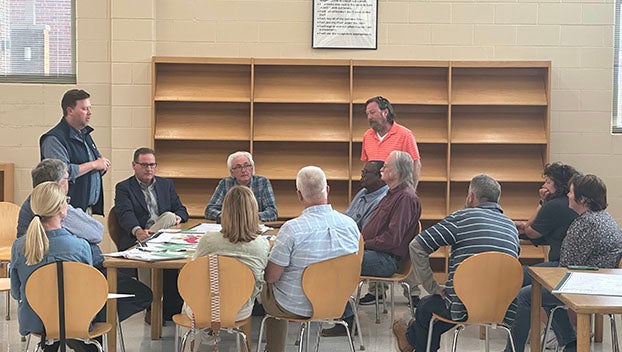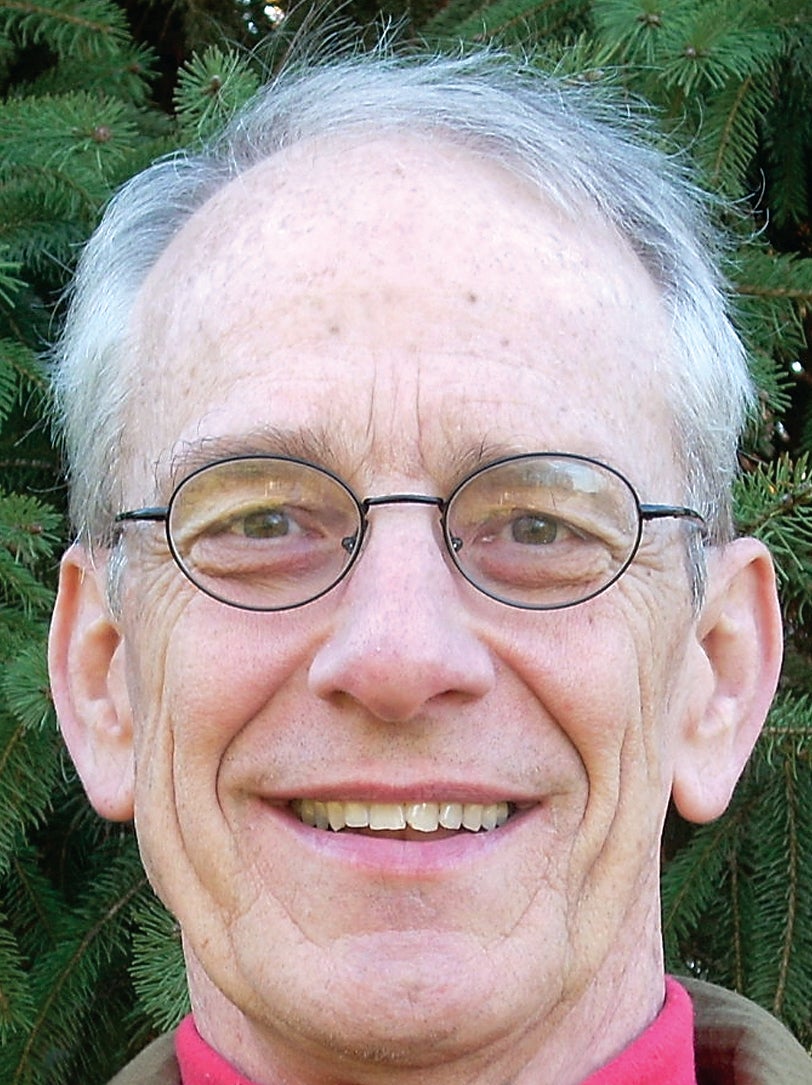Community provides feedback on Comprehensive Unit Plan
Published 12:00 pm Friday, April 28, 2023

- BCTC Winchester’s Bruce Manley leads a breakout group during last week’s meeting. (Photo by Matt Cizek)
|
Getting your Trinity Audio player ready...
|
Last individuals gathered at the auditorium of Robert D. Campbell Junior High School to discuss Clark County’s future.
Various community members were present to discuss ongoing ideas associated with the Winchester-Clark County Comprehensive Unit Plan.
“This is a public workshop to discuss the future Land Use Map and some of the goals and objectives that are existing in the Comprehensive Unit Plan thus far,” said Shawn Dade, Senior Planner for Taylor Siefker Williams Design Group, who is consulting on the project. “I hope to see some good discussions, and I hope to see some good ideas and feedback come from what we’ve presented.”
To begin the meeting, Dade was joined by city of Winchester Director of Planning and Community Development Robert Jeffries and other staff in explaining the land use map.
Specifically, a land use map represents a parcel or area’s best possible land use. It guides decision-makers in considering rezoning and other land use applications, but without changing the zoning of a parcel.
Afterward, attendees had time to view the currently existing goals and objectives.
Among them are ensuring that all residents have access to high-quality public spaces and services, supporting and promoting high-quality educational resources that will provide a skilled workforce and attract high-paying jobs, and promoting the development of agricultural businesses in Winchester and Clark County.
Individuals were then split into breakout groups and headed to the school library to review input from previous workshops while discussing needed changes and reporting central ideas to the group.
Several residents participated in the different breakout groups, including Winchester-Clark County Industrial Development Executive Director Brad Sowden, Clark Coalition Executive Director Will Mayer, and BCTC Winchester Campus Executive Director Bruce Manley.
While looking at the maps, individuals got asked to consider current and future zoning possibilities for sites including agriculture, commercial, heavy industrial, light industrial, single-family residential, multi-family residential, mobile homes, and more.
During the conversations, many discussion points were made.
For example, one attendee mentioned that residential development must be before commercial, while another pointed out a need to make fiscally responsible decisions using taxpayer dollars.
Many that were present also emphasized using finances toward infrastructure.
When all was said and done, the groups gathered again in the auditorium for a further discussion and recap.
“A lot of the comments were on the [agriculture] community and preserving our farmland as well as controlling the urban development within the urban service boundary that we’ve established,” said Jeffries.
While the group discussions lead those in charge to be one step closer to finalizing a future Land Use Map, Jeffries wants others to know of the efforts taken toward community development.
“I hope that the community sees how much effort we’re putting towards making sure that we’re seeking their input,” he stated.





